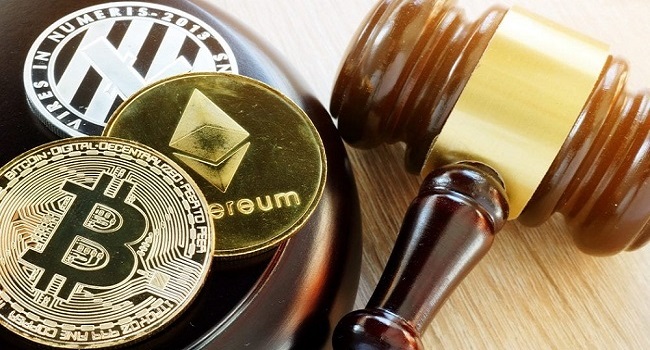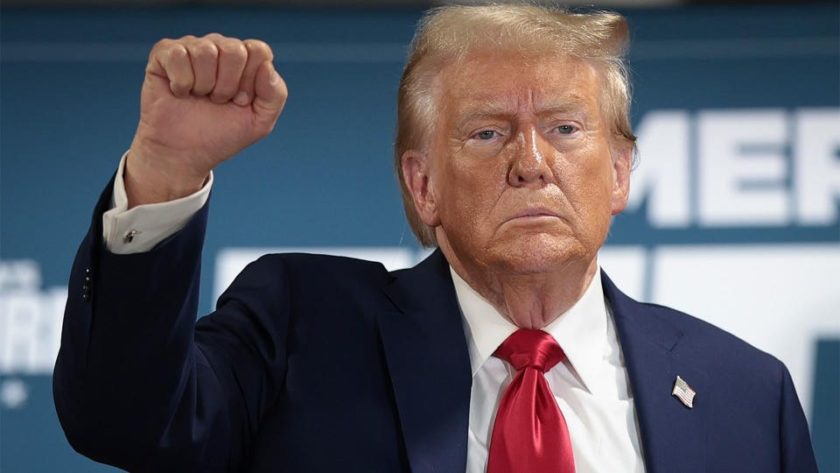With the increasing interest in cryptocurrency and the dynamic regulatory frameworks, everyone is eager to know what the future holds for crypto exchanges. Global regulators are dealing with how to best frame policies that enable them to police the crypto sphere effectively, while trying hard not to disrupt the privacy of users to such an extent that it creates a backlash from them.
This is indeed a very fine line that requires a delicate balance. It is vital that investors, as well as all those interested in the crypto market, have a fair idea of what the regulatory conditions around this world are, before choosing a digital currency exchange. In fact, geographic restrictions placed by regulatory bodies also affect how the crypto exchanges offer services to people in different regions.
While global regulators are divided on how to best deal with crypto exchanges, and keep up with their new technology they offer, it is wise to keep a list of major crypto exchange regulations in mind. A single nation might have several organizations involved in the decision-making process, and each one is bound to have different aims, which proves to be troublesome. Coming to a conclusion in such cases is close to impossible. Let us explore some of the most debated and famous regulations that crypto exchanges face throughout the world.
Global Regulations of Crypto Exchanges
The Financial Action Task Force (FATF), which was assigned by the G20, has set stringent regulations which seek to finalize new standards. These aim to regulate crypto firms, and while they are not legally binding, nations that do not follow them might get blacklisted in the global economy, so it is a given fact that most countries would gladly adopt these norms.
While regular Know Your Customer (KYC) requirements haunt most crypto firms, the new regulations are a step above. It would require crypto exchanges dealing with trade, and cryptocurrency, to verify and keep records of user identities. They will also have to pass information to each other, just like other service providers, especially while transferring funds. This is the same procedure followed by banks and takes away the prime idea of privacy and anonymity, which was the key attraction of crypto exchanges and cryptocurrency in general.
US Treasury Under Secretary for Terrorism and Financial Intelligence, Sigal Mandelkar, verified the stand of the US, during a speech at Consensus 2019:
“During its presidency of the FATF, the United States has worked with other countries to clarify how all countries should regulate and supervise activities and providers in the digital currency space.”
Mandelker also made it a point to add that they “anticipate that in June the FATF will adopt a final version of its Interpretative Note, along with updated guidance to further assist countries and industry with their obligations.” While not explicitly mentioned, everyone was requested to carefully read the guidance, which states travel rule as a requirement.
Mandelkar pointed out that features that add comfort and ease to many users, like anonymity or speed of transactions, could easily be misused by terrorists, or malicious people, or groups, saying “Some of the features of emerging technologies that appeal most to users and businesses – like speed of transfers, rapid settlement, global reach, and increased anonymity – can also create opportunities for rogue regimes and terrorists.”
This is why the new framework requires that “Countries should ensure that originating VASPs obtain and hold required and accurate originator [sender] information and required beneficiary [recipient] information on virtual asset transfers, submit the above information to beneficiary VASPs … and make it available on request to appropriate authorities.”
European Union’s Crypto Exchange Regulations
While in 2016 there was a motion enabling taxation of cryptocurrencies holdings and earnings, there is no one size fits all regulation list. Individual nations formulate their own laws for regulation and control. Here are a couple of examples.
Estonia
While it is easier to run a crypto exchange in Estonia than in other nations, full compliance with all regulations is still expected. The first and second quarters of 2019 indicate a gradual tightening and tweaking of crypto business regulations that is now fully required. With two kinds of licenses, one for digital asset exchanges, and one for wallet providers, newer regulations involve:
- More verification of team, and board members
- 90-day approval period
- Media attention taken into account during the approval period
- License fee increase
- Current license holder has to check compliance to new regulations within a specified time
In 2018 the KYC and Anti Money Laundering (AML) legislation was passed, dedicated to developing policy in the industry.
France
France has a more liberal policy, taking into account the complexity of crypto projects. With the adoption of Action Plan for Business Growth and transformation, ICOs are being encouraged and outlines concrete and practical plans to bridge existing financial services, with crypto exchanges, and the industry. France also pushes to establish a G7’s crypto task force, mainly to supervise and regulate Facebook Libra.
Crypto Exchange Regulation in Non-EU Nations
Switzerland
Becoming a hub for crypto startups, Switzerland has approved a motion to adapt the existing financial regulations to crypto, which takes away the need to create new frameworks and regulations. However, it remains to be seen whether the same policies work for crypto exchanges. Ever since the country hosted the Ethereum ICO in 2014, they have had a long standing as leaders in the cryptocurrency regulation department, often referred to as “Crypto Valley,” creating a positive environment.
United Kingdom
Dave Ramsden of UK Central Bank identified a few key points in a video, saying that while the authorities do not consider crypto to be a currency, they do accept it as an asset. This is because it is a chunky, expensive medium of exchange, which is too volatile to be valuable.
While the British government do not see the crypto market as a threat to the financial stability (at least not yet), they will no doubt monitor the activities of the cryptocurrency market and exchanges, continuously monitoring any risks and assessing them in order to decide further actions.
However, this is deemed to be not enough by some, with Treasury Committee Chair, Nicky Morgan, saying:
“It’s unsustainable for the Government and regulators to bumble along issuing feeble warnings to potential investors, yet refrain from acting…At a minimum, regulation should address consumer protection and anti-money laundering.”
Crypto Exchange Regulations in the Middle East

Most Middle Eastern nations view cryptocurrency and digital assets as a get rich quick scheme, as Iraq, Qatar and Saudi Arabia have made it completely illegal. This is due to the fact that they perceive these to be a threat to the economy of the region.
However, the United Arab Emirates leans slightly forward, whereby they collaborate on a global scale for better regulations that reduce risks, which would in turn improve the image of crypto exchanges on a global scale. Classified tokens from ICOs are also treated as special investments. The UAE even hosted a crypto forum and managed to partner with Saudi Arabia for the launch of their own cryptocurrency
Israel
With a lot of confusion regarding the actual state of legislation concerning crypto exchanges in Israel, clear guidelines are not yet formed. They concluded that crypto should be assets and not currencies. Israel is currently working closely with Switzerland to devise cryptocurrency regulations.
This resulted in a new legislation targeting illegal gambling, which also covered digital currencies. Although this gives banks the green light to accommodate crypto exchanges and similar services, the legislation was put on hold for four months, leaving everyone in a state of suspense.
Transactions of more than $1,400 per transaction would raise a flag, which would require cryptocurrency exchanges to keep records of customer IDs, public keys, and IP addresses of customers. Hailed as a unique, and all inclusive policy, the fact remains that no one is aware whether or not they are actually in practice now. Although a large number of Israeli nationals use cryptocurrencies, the official legislation is still pending.
Crypto Exchange Regulation in Russia
While Russians were heavily engaged in cryptocurrency trading in 2018, there have been calls for quick regulations, until which there were no official regulations for crypto exchanges. There are fears about security, investors risk losses, and government control is also at risk.
This might be why President Putin himself discussed the issue, explaining that it’s not logical for Russia to have its own cryptocurrency because by nature crypto is decentralized and without borders as countries are. This was followed by his call to establish firm regulations by July 1, which never happened.
Conclusion about Crypto Exchange Regulations
With a number of agencies involved in the decision-making process, it takes time to come up with a comprehensive policy that satisfies all parties involved. One has to keep in mind the complexities that crypto exchanges have to face while dealing with cryptocurrency trading and blockchain solutions, as they are very different than conventional sources of currency.
While privacy and anonymity may be dangerous, or misused, policymakers must remember that that was the whole point of a decentralized system, and maintaining these large volumes of records might prove to be close to impossible for cryptocurrency exchanges, especially those that trade in large volumes. Policies must be made keeping all stakeholders in mind.





